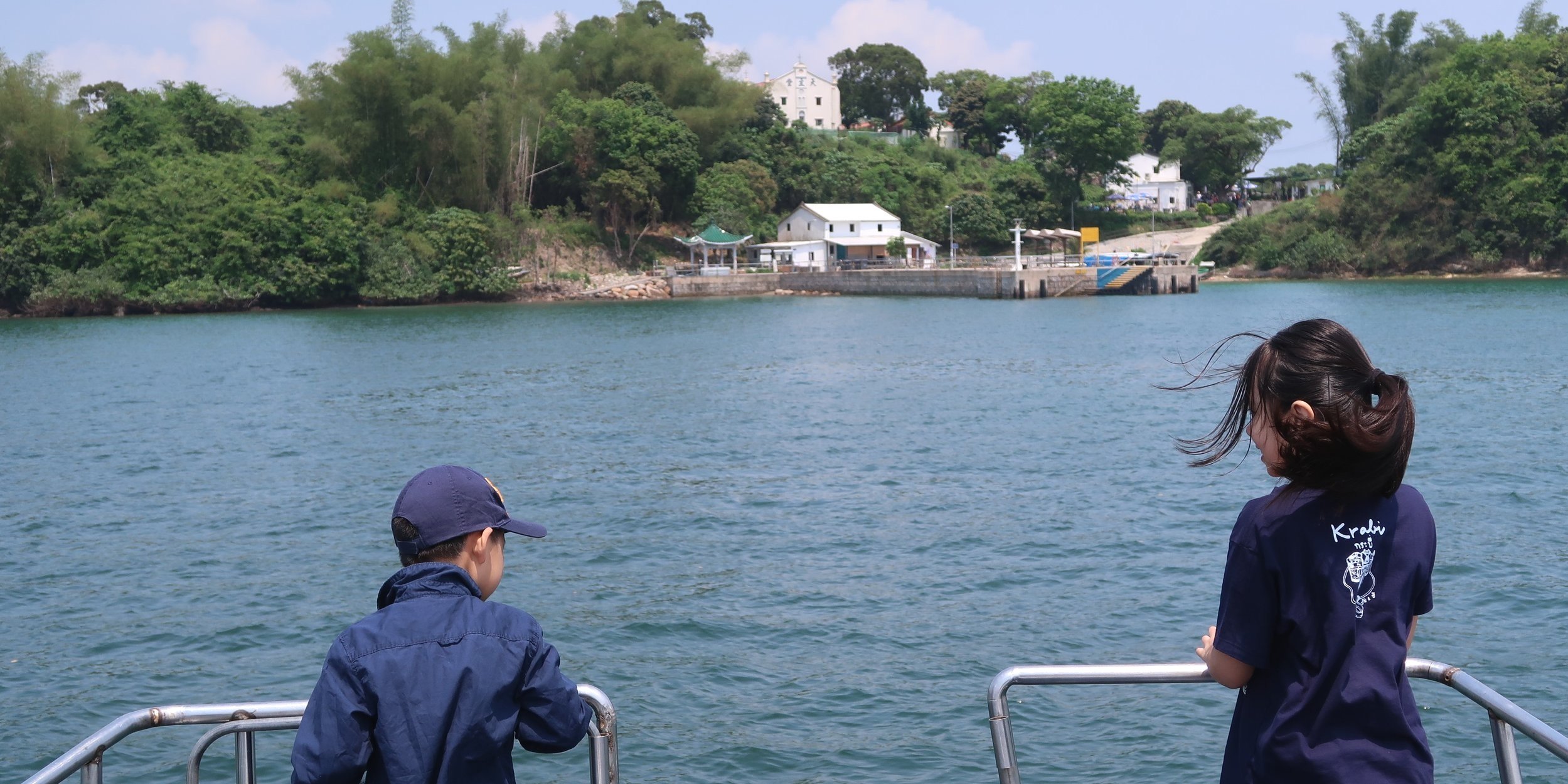“光房計劃建基於短貧戶的上進心、行動,以及業主的善意。”
余偉業
要有光創辦人及行政總裁

助人上流的房屋機構
要有光是由余偉業於2010年創立,提出以創新「向上流動租約」有針對性地協助「短貧戶」。在現實生活中,工作、家庭與住屋之間的矛盾有時會令人想躺平。「向上流動租約」的目標,是激勵和督導這些面對兩難的人去發掘多一條路。這條路要讓他們有機會將生活目標由「脫貧」提升至「向上流」,並有空間讓他們能夠一邊務實地「計數」,另一邊又能有一個去「搏」的方向!自創辦以來,要有光已經累積了十多年的向上流動租約實際管理經驗。
要有光始終相信短貧戶的個人潛能是推動他們向上流動的最可持續發展資源!十多年來,要有光見證了大量受惠住戶逐步邁向自立,成果甚至遠超他們對自己原有的期望。同時,這創新理念持續得到善心業主的支持,他們一個接一個地提供自己的物業,令「向上流動租約」得以持續發展。
Housing organization fostering upward mobility
Light Be was founded by Ricky Yu in 2010, proposing an innovative "Upward Mobility Tenancy" specifically aimed at assisting short-term impoverished households. In real life, the tensions between work, family, and housing can sometimes press people to lying flat. The goal of the Upward Mobility Tenancy is to motivate and guide those facing dilemmas to explore a new path. This path allows them the opportunity to elevate their life goals from "escaping poverty" to "moving upward," while also providing space for them to pragmatically "calculate" and have a direction to "strive" forward! Since its founding, Light Be has accumulated over ten years of practical management experience with Upward Mobility Tenancy.
Light Be believes that the personal potential of short-term impoverished households is the most sustainable resource for driving their upward mobility! Over the past decade, Light Be has witnessed many beneficiary households gradually becoming self-reliant, with results that even exceed their original expectations. At the same time, this innovative concept continues to receive support from kind-hearted property owners, who one by one provide their properties, allowing the Upward Mobility Tenancy to continue developing.

短期貧窮
短期貧窮常常是突發性或隱藏性的。許多面臨短期貧窮的人缺乏計劃或足夠的時間來應對突如其來的住屋困難或財務變化。由於他們看起來像普通市民,他們的需求往往不容易被察覺。如果未能適當處理,短期貧窮問題可能演變為長期貧困問題,對個人和社會產生深遠的影響。
要有光專注於協助處於短期貧窮的住戶重建向上流動的能力,並為他們提供短期房屋。受惠對象根據住戶家中經濟支柱的年齡和上流動機,被分為兩個群體。
青年:這個群體主要由年輕成年人組成,他們的主要動機是改善自己的經濟狀況並推進自己的職業生涯。
家有兒童:這個群體由父母組成,他們的主要動機是為子女提供更好的生活品質。
短貧戶的主要特點包括:
· 追求自力更生。
· 居住在不適條件下。
· 收入水平略高於或略低於貧困線。
· 低收入家庭的第二代。
· 家庭暴力或其他家庭失敗的受害者。
事實上,即使只有部分符合這些描述的個人或家庭也可能屬於短期貧窮群體。我們鼓勵他們不要過早將自己貼上長期貧窮的標籤。
Short-term poverty
Short-term poverty is often sudden or hidden. Many individuals facing short-term poverty lack a plan or sufficient time to cope with the sudden housing difficulties or changes in financial status. Because they appear to be ordinary citizens, their needs are often not easily recognized. If not properly addressed, short-term poverty can evolve into long-term poverty, having far-reaching effects on individuals and society.
Light Be focuses on assisting households in short-term poverty to rebuild their upward mobility and provide them with short-term housing. Beneficiary households are divided into two distinct groups based on the age and motivation of the breadwinner within the household.
Youth: This subgroup comprises younger adults who are primarily motivated by improving their financial situation and advancing their careers.
Families with Children: This subgroup consists of parents who are primarily motivated by providing a better quality of life for their children.
Key characteristics of short-term impoverished households:
· Striving for self-reliance
· Living in substandard conditions
· Income level slightly above or below the poverty line
· Second generation of low-income families
· Victims of family violence or other family failures
Indeed, individuals or households who only partially fit the description may also fall within the short-term poverty group. We encourage them not to prematurely label themselves as long-term impoverished.

向上流動租約
短貧戶大都缺乏脫貧或向上流動的經驗。除了提供可負擔的居所,要有光也像一位教練,給每位受惠住戶個性化的方向和督導,協助他們力爭上流。這是向上流動租約與一般租約的主要分別。
計劃特色如下:
三年計劃:計劃以不多於三年為期,讓參與者能夠在三年內分階段逐步實現他們的上流目標。
專屬教練:每個受惠對象都會被分配一位經理作為專屬教練,他們會為參與者提供個性化的督導和指導。
關鍵績效指標(KPI):受惠對象需要設定與他們個人向上流動相關的具體KPI。這些指標可能包括要努力「搵多啲、儲多啲、住大啲」等,以及其他根據個人情況設定的目標。
租金負擔能力和畢業:計劃旨在改善受惠對象的租金負擔能力。我們鼓勵他們將租住私人單位作為下一個房屋目標,並作為公屋以外的多一個選項。此外,一些受惠對象可能會受到啟發,追求更高的房屋目標,例如購買居屋單位,作為他們向上流動旅程中的重要里程碑。
Upward Mobility Tenancy
Most short-term impoverished households lack experience in escaping poverty. Besides providing affordable housing, Light Be also acts as a coach, offering personalized orientation and guidance to help beneficiaries achieve upward mobility. This is the main difference between Upward Mobility Tenancy and ordinary tenancy.
Program highlights:
Three-Year Plan: The program operates within a three-year timeframe, allowing participants to progress and achieve their goals through several phrases over an appropriate period of time.
Personalized Coaching: Each beneficiary is assigned a Manager who provide personalized coaching and guidance throughout the program.
Key Performance Indicator (KPI): Beneficiaries are required to set specific KPIs tailored towards their upward mobility journey. These KPIs may include striving to earn more, save more, live in larger accommodations and other personalized metrics.
Rental Affordability and Graduation: The program aims to improve the rental affordability for beneficiaries. They are encouraged to use private rental units as a viable option for their next housing goal, providing an alternative to public rental housing. Furthermore, some beneficiaries may even be inspired to pursue higher housing goals, such as purchasing Home Ownership Scheme (HOS) units as a significant milestone in their upward mobility journey.
要有光的工作
What Light Be Do
要有光 向上流動計畫 要有光 向上流動機構 要有光 向上流動為本 要有光 向上流動第一 要有光 向上流動最可助人自助 要有光 向上流動計畫 要有光 向上流動機構 要有光 向上流動為本 要有光 向上流動第一 要有光 向上流動最可助人自助 要有光 向上流動計畫 要有光 向上流動機構 要有光 向上流動為本 要有光 向上流動第一 要有光 向上流動最可助人自助 要有光 向上流動計畫 要有光 向上流動機構 要有光 向上流動為本 要有光 向上流動第一 要有光 向上流動最可助人自助
